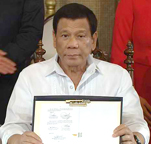- News Front Page
- Uncategorized
- Headline News
- Filipino Calgarian
- Business
- Pinoy Stories
- Community News
- Publisher's Note
- The Main Ingredient
- Views and Opinions
- Maikling Kwento
- Alberta News
- OFW – Month
- Travel News
- Health and Lifestyle
- Pinoy Toons
- Pinoy Spirit
- Entertainment
- The Philippine Lawyer
- Horoscope
- Greetings
- About Us
- Greetings From the Prime Minister
- Greetings from the President of the Philippines
- Greetings from the Premier of Alberta
- Greetings from the Mayor of Calgary
- Advertise With Us
- Disclaimer
- Subscription
Publisher's Note
- Publisher’s Note
 It was 22 years ago when I arrived in Canada and chose Calgary, Alberta to be my home. Leaving my family and friends behind, it was a new adventure for me to be in a new country without knowing anyone. That was the time I looked for a Filipino community paper and never found any, [...]
It was 22 years ago when I arrived in Canada and chose Calgary, Alberta to be my home. Leaving my family and friends behind, it was a new adventure for me to be in a new country without knowing anyone. That was the time I looked for a Filipino community paper and never found any, [...]
Visitors to Pinoytimes
Page added on November 28, 2013
The 21 Irrefutable Laws of Leadership (Part II)
[if gte mso 9]>
[if gte mso 9]>
[if gte mso 10]>
By Consuelo (Chit) E. Munar
According to motivational experts, the function of coping with complexity is management while the function of coping with change is leadership. The rationale behind is that it has become more competitive in the business world in recent years. Technology change became so rapid, there’s greater international competition, demographics in the workplace is changing, and deregulation of markets are all contributing to this shift. Major changes are increasingly necessary to survive and compete effectively in the current environment . More changes always demands more leadership.
The following eleven (11) laws complete John C. Maxwell’s 21 irrefutable laws of leadership:
XI. The Law of E.F. Hutton – when a real leader speaks, people listen. Within a short time of observing a meeting, one can identify the key provider of influence by paying attention to eye contact. After a question has been asked, who do people watch? Whose opinion do they wait to hear? Of course, the person they look to is the real leader.
XII. The Law of Intuition – leaders have talent but they also possess instincts and other qualities that earn them the right to lead. Their intuition instantly enables them to size up a situation and take the appropriate step or action. They’re excellent readers of people and trends, and they use this knowledge to advance their goals.
XIII. The Law of Inner Circle – a leader’s potential is determined by those closest to him. Find proven leaders who assist you in extending your influence and boost morale, delegate responsibility to them, and never stop investing in their growth and development.
XIV. The Law of Buy-in – Many would-be leaders mistakenly believe that if their cause is good enough, people will automatically rally around it. People don’t follow worthy causes. They follow leaders who promote worthy causes. People buy into the leader, then the vision.
XV. The Law of Victory – Good leaders find a way for their team to win. Winning leaders share an inability to accept defeat. Because losing seems totally unacceptable to them, so they figure out the effective plan to win, and they go after it with everything at their disposal.
XVI. The Law of the Big Mo – Momentum is a leader’s best friend. Creating change in an organization is the biggest challenge that the leader faces. With momentum working in his favor, the job gets much easier. When someone has momentum, the future looks bright, obstacles become surmountable and trouble becomes temporary.
XVII. The Law of Priorities – Leaders understand that activity is not necessarily accomplishment. Leaders prioritize their efforts for maximum result. In selecting where to devote their time, leaders ought to consider what’s required of them, what offers the greatest return, and what brings them the greatest satisfaction.
XVIII. The Law of Sacrifice – a leader must give up to go up. Sacrifice is a constant in leadership. Each time a leader progress to a higher level of influence, he/she gives up additional rights. The true nature of leadership has less to do with perks and more to do with sacrifice.
XIX. The Law of Timing – when to lead is as important as what to do and where to go. When a leader makes the right move prematurely, he will definitely encounter heavy resistance. On the other hand, the right move made at a slow pace won’t be effective. It takes the right action and done at the appropriate time , for a leader to find success.
XX. The Law of Explosive Growth – Leaders who develop followers can only grow their organization one person as a time. But leaders who develop leaders multiply their growth , because for every leader they develop, they also influence all of that leader’s followers.
XXI. The Law of Legacy – leadership is the one thing you can’t delegate. Leaders who leave a legacy take a long view of the future. Seeing beyond, they prepare for the organization to sustain itself independent of their involvement. They create a leadership culture in which influential leaders are spread throughout the ranks of the organization. Legacy-minded leaders refuse to see themselves as permanent fixtures in the organization. They intentionally seek to be replaceable – training others to carry the torch after they depart.
These leadership insights are practical and they can be used daily to improve leadership ability. All of us who are striving to improve our leadership should follow these laws.
RELATED STORIES
LATEST HEADLINES
- ISKWELAHANG PILIPINO (IP) RONDALLA OF BOSTON WINS THE HEARTS OF CALGARIANS
- Pinay doctor joins Medicus Family Clinic and Pharmacy
- Multicultural Ethnic Media round table with Minister of Finance Joe Ceci together with Minister of Social Services Irfan Sabir
- Trans Mountain Pipeline keeps Canada working
- Facilitating travel to Canada while keeping Canadians safe
COMMUNITY NEWS
 A new way forward for some immigration application processing times
A new way forward for some immigration application processing times Calgary Stampede 2018 Poster
Calgary Stampede 2018 Poster Alberta celebrates first Philippine Heritage Month
Alberta celebrates first Philippine Heritage Month UPAAA Welcomes New Philippine Consul General
UPAAA Welcomes New Philippine Consul GeneralPINOY STORIES
 Duterte signs National ID System Act
Duterte signs National ID System Act- Holy Week practices in the Philippines
PINOY SPIRIT
HAVE YOUR SAY
Lorem ipsum dolor sit amet, consectetur adipiscing elit, dolor sit ipsum.PROMOTIONAL BLOCK
Lorem ipsum dolor sit amet, consectetur adipiscing elit, dolor sit ipsum.TRAVEL NEWS
PINOY TOONS
Tags
Archives

















